Another brace of wonderful concert snapshots from over a century ago has recently been unearthed by the well known brass band historian Allan Littlemore.
As reported on 4BR, earlier this year Allan found a remarkable piece of memorabilia tucked inside a cover of a book - a crepe paper programme for ‘Two Grand Concerts’ given by Besses o’ th’ Barn Band on Easter Sunday, April 11th, 1909 at The Palace, Promenade, Blackpool, conducted by the great Alex Owen.
Evocative insight
Now he has unearthed two more – and both give further evocative insight into the post Victorian brass band world in the UK.
The oldest once again features Besses o’ th’ Barn Band – this time for a concert that took place in Moss Lane in the town of Whitefield near Manchester on Monday 23rd July 1906.
The date is significant, as according to the programme it is billed as ‘Final Concert – previous to their Tour of the World’.
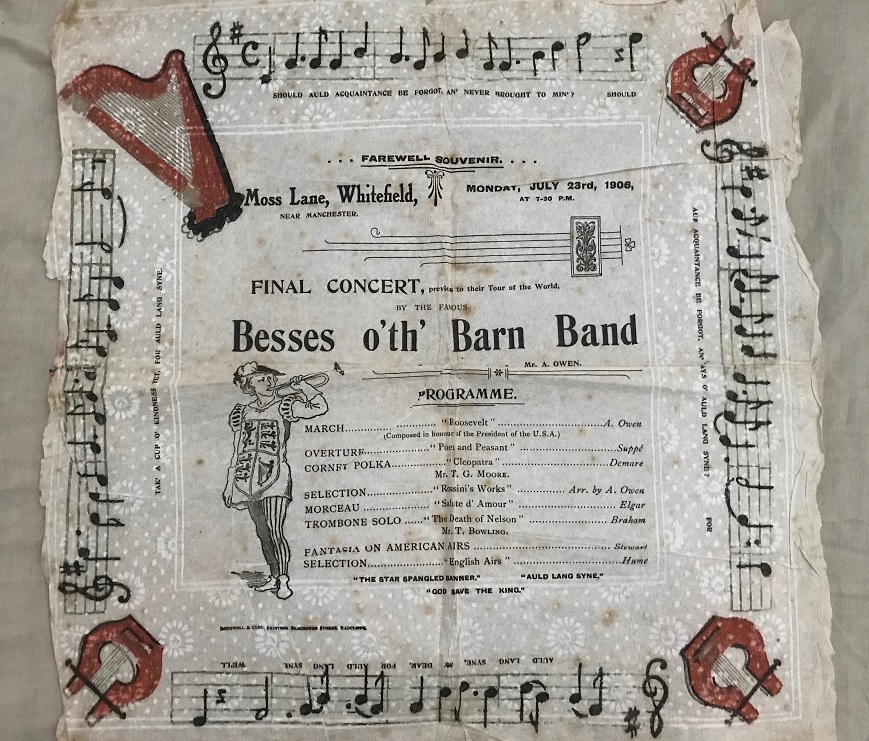
The 'Final Concert' given by Besses before they embarked on their 1906 World Tour
That was to see them embark on a journey that would take almost 18 months before they returned home, and with a stop-off in America, conductor Alex Owen was to make sure they made a good impression with a special march entitled ‘Roosevelt’ in honour of the 26th President of the United States.
Donald Trump
That was a certain Theodore Roosevelt Jr (below), who served in the role from 1901 to 1909 – and a man whose ability to project himself on the America consciousness made Donald Trump look like an amateur.
You cannot quite imagine a brass band wishing to commission a march in honour of the present incumbent of the White House?
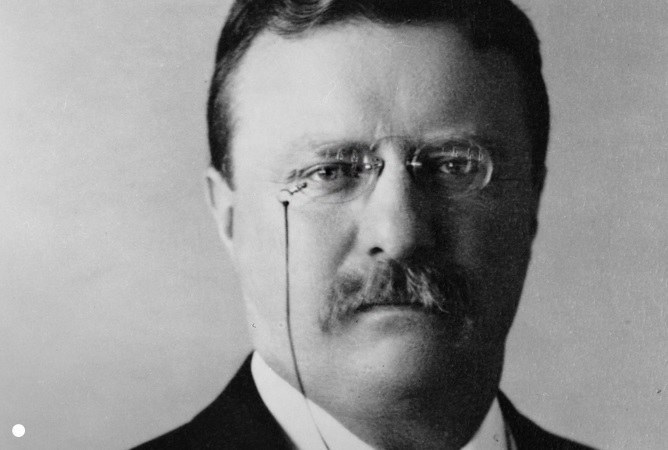
A march fit for a President...
He was two years into his second term and had just been presented with the 1906 Nobel Peace Prize.
You cannot quite imagine a brass band wishing to commission a march in honour of the present incumbent of the White House?
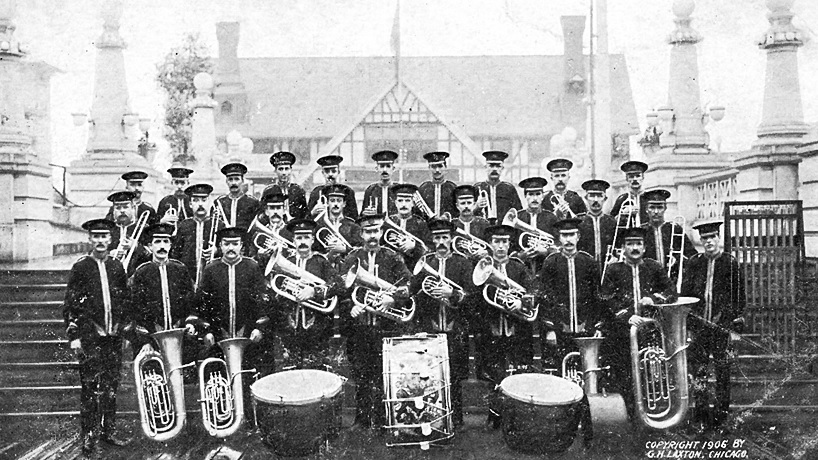
Besses performed for a month in Chicago on their 1906 World Tour
Also on the programme that night was the cornet solo ‘Cleopatra’ - still played to this day, as well as the overture ‘Poet & Peasant’, whilst in another nod to the ‘special relationship’ (if one existed at the time), there was a ‘Fantasia on American Airs’.
British sensibilities towards one of its own heroes were catered for with the trombone solo ‘The Death of Nelson’ played by Mr T Bowling, whilst to ensure any ex-pat Americans in the audience in Whitefield that night felt at home, the ‘Star Spangled Banner’ was also performed alongside ‘Auld Lang Syne’ and ‘God Save the King’ to round off the entertainment.
Rural Japan
The second programme is something of a more touching curiosity – and not just as it was printed on crepe paper inspired by scenes of rural Japan.
It featured ‘Two Grand Concert’ performances on Sunday 30th July 1911, on Morecambe Central Pier by the Band of the Yorkshire Hussars conducted by the splendidly named Mr Cramer Suckley.
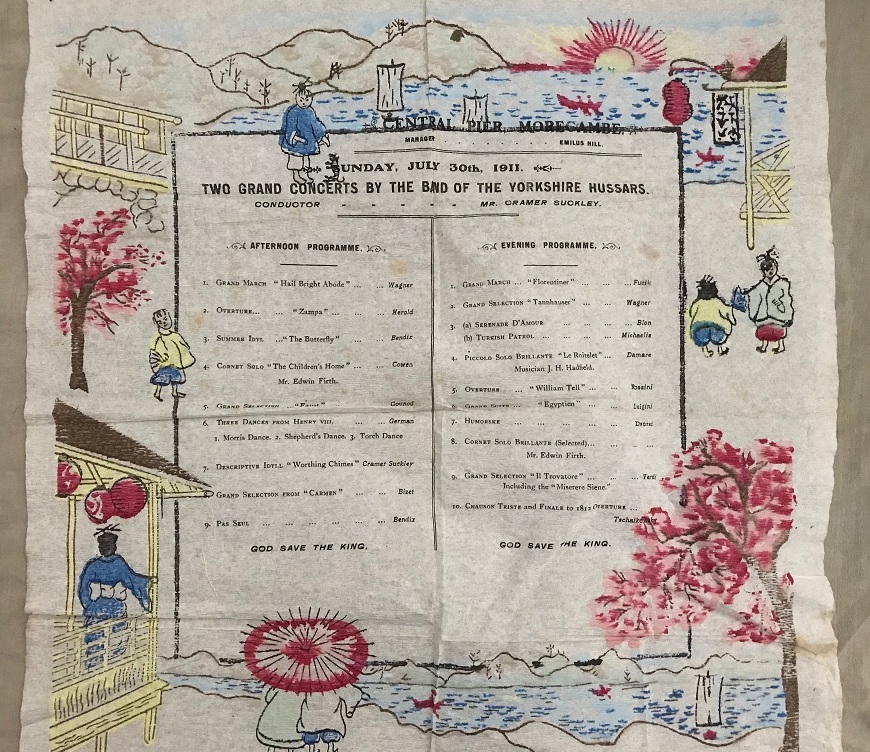
Oriental inspiration for the Yorkshire Hussars and Edwin Firth...
Opened in 1869, by 1911 the pier was attracting thousands of visitors each week – although whether or not that was inspired by anything Japanese is unknown…
Peak of his powers
Amid the usual pieces to entertain the audience such as the overture ‘Zampa’, the conductor’s own ‘descriptive idyll’, ‘Worthing Chimes’, selections from ‘Carmen’ and ‘Faust’, ‘Il Travatore’ and ‘Tannhauser’, and two solo spots from a certain Mr Edwin Firth – then at the very peak of his powers as the principal cornet of Foden’s Band.
In the afternoon he performed ‘The Children’s Home’ by Cowen and later the same evening, ‘Brillante’.
Opened in 1869, by 1911 the pier was attracting thousands of visitors each week – although whether or not that was inspired by anything Japanese is unknown…
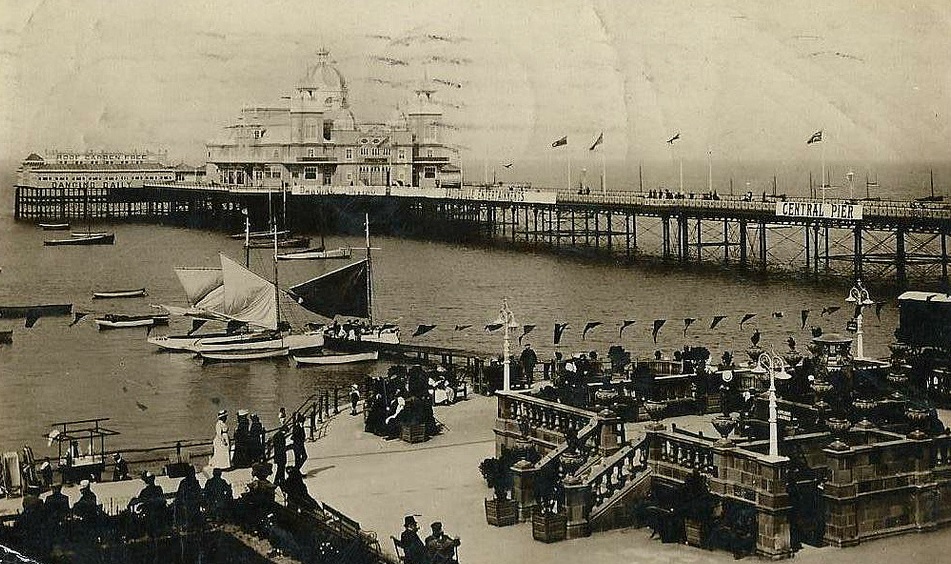
Morecambe Central Pier in 1909
Destiny
A few years later, with the First World War also at its horrendous peak, Firth joined the 28th London Regiment and was posted to France, where he was killed in action on 1st June 1918.
Morecambe Pier was closed in 1986 and demolished following a fire in 1992.
Iwan Fox













